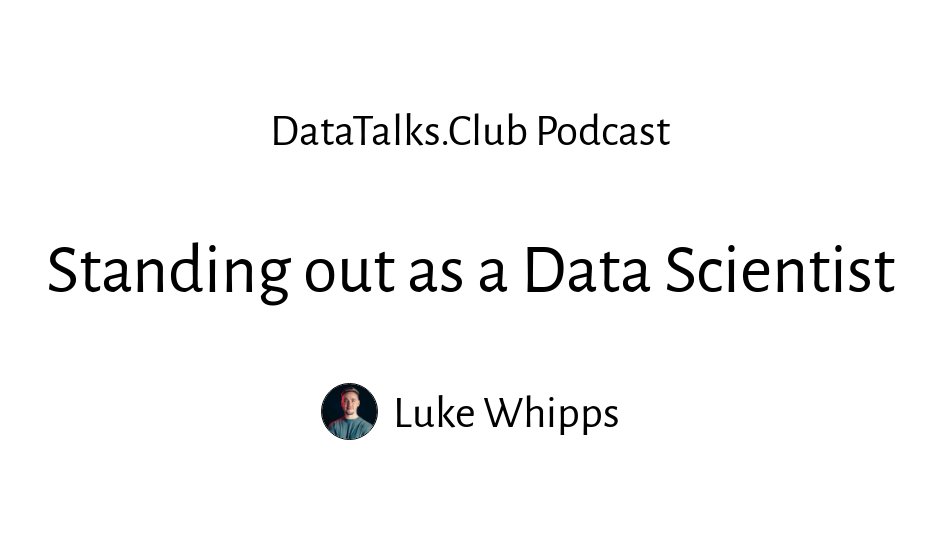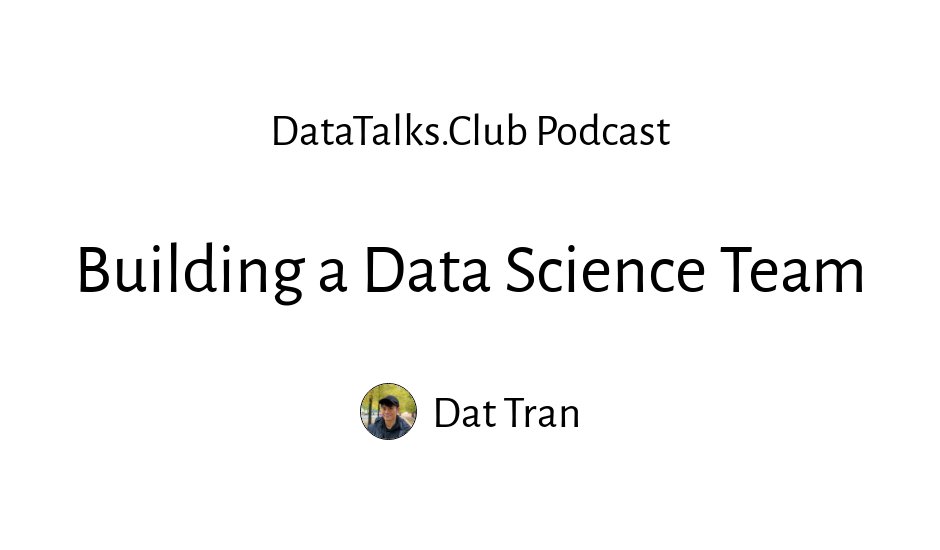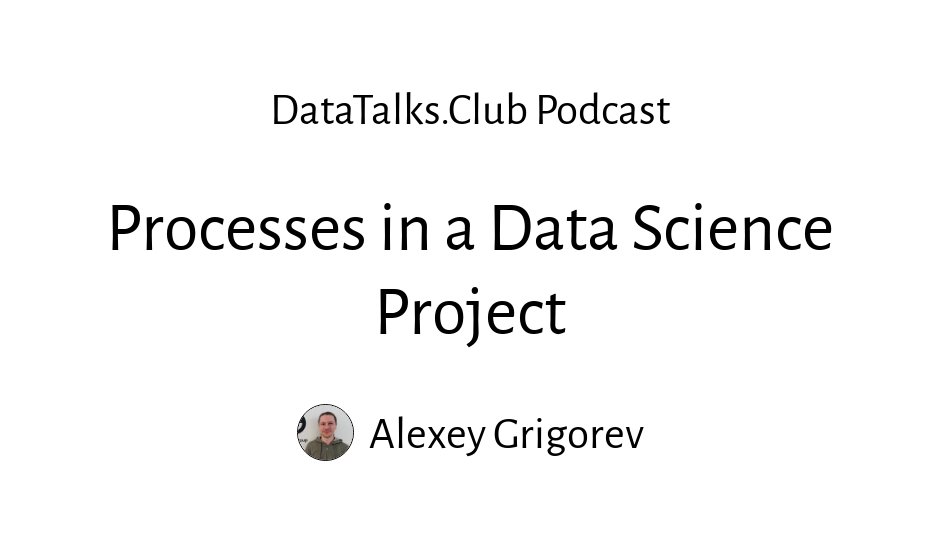How to Find a Mentor and Become One: Mentoring Strategies for Tech Careers | Rahul Jain
Listen to or watch on your favorite platform
Show Notes
Struggling to find a mentor — or wondering how to become one — in a fast-moving tech career? In this episode, Rahul Jain, a senior solutions engineer and data/AI leader with 15+ years driving enterprise data transformations and a career arc from mining engineering to data engineering and leadership, walks through practical mentoring strategies for tech professionals. We define mentoring (purpose, scope, types), explore early models like Thoughtworks’ sponsorship, and show how to find mentors through networks, platforms, and cold outreach — with concrete outreach best practices: specificity, background, and follow‑up. Rahul covers preparing mentoring sessions (goals, agendas), mentoring formats (one‑off advice vs long‑term relationships), and how to start as a mentor using simple first steps and platforms. Topics include benefits of mentoring, transferable workplace guidance, developing people skills (empathy, listening), balancing technical work and leadership, tackling imposter syndrome, coaching vs managing, setting boundaries and paid mentorship, and maintaining development plans. Listen to gain actionable steps, templates, and mindset shifts to both secure meaningful mentorship and build a sustainable mentoring practice in your tech career.
Today we’re discussing mentoring with Rahul Jain, a technical leader with about 20 years of experience building and running software products. He currently leads the Business Intelligence and Data Engineering units at Omio, a ticket-booking company, and mentors engineers and managers through The Mentoring Club.
We covered:
- Background and journey
- What is mentoring?
- Experiencing mentoring
- Finding a mentor
- Benefits of being a mentor
- Mentoring beyond your domain
- The Mentoring Club
- Preparing for mentoring sessions
- Common mentoring challenges
- Learning people skills for mentoring
- Balancing tech and leadership
- Q&A from the Audience
Background and journey
Q: Could you walk us through your professional journey and share how you got to where you are today? What were the key turning points in your career?
Rahul: Sure. I grew up in different parts of northern India and graduated in mining engineering in 1999—not data mining, but actual mining. By the time I graduated, I realized I wasn’t interested in a mining career and was more drawn to computers. Luckily, the global IT boom was happening, so I joined an Indian IT services company in Bangalore and spent about seven years there as a Java programmer. Back then, Java was like Go or Rust today—the cool thing to do. I worked across domains, mostly finance.
After that, I moved to Singapore and joined Credit Suisse, an investment bank. That was my first real foray into the data world. Most products and technologies there were data-related—though we didn’t call it “big data” yet. I worked on a team called Market Data Ingest, essentially doing ETL, though we didn’t use that term then either. I spent six or seven years there, starting as a back-end engineer and later becoming a team lead.
Then I joined Thoughtworks, a consulting company known for its deep engineering culture—Martin Fowler is there. I worked across domains again but stayed close to data. About three years ago, I moved to Berlin to join Omio (formerly GoEuro), a ticketing company. If you’re traveling in Europe—and now also in the US—you can book tickets on our portal. I was asked to lead the BI and Data Engineering team, and that’s what I’ve been doing since. It’s funny how I started with mining and now do “data mining,” though today we call it data science.
What is mentoring?
Q: How would you define mentoring, and what role do you think it plays in professional development? What makes mentoring different from other types of professional relationships?
Rahul: Traditionally, mentoring is a partnering relationship with someone who knows more about a topic than you do. You reach out, build a supportive relationship, and get help answering questions. I define it more loosely: it’s reaching out for a different perspective—on a problem, a challenge, or a career decision—and getting input from someone whose viewpoint might help.
In tech, this is especially important. Unlike fields like food, retail, or law, we don’t have a strong apprenticeship tradition—those first years working closely with someone who guides you. So having someone to reach out to becomes crucial.
Q: Does mentoring always need to be a long-term commitment, or can it be more flexible? What are the different types of mentoring relationships?
Rahul: It depends on your needs. I recommend having a long-term mentoring relationship, but people often have small, specific questions too—and that’s totally fine. It can be as simple as: “I’m a Java developer and want to move into data analysis—is this the right move for me?” That’s also mentoring.
Experiencing mentoring
Q: Looking back at your career journey, what role did mentorship play in your professional development? When did you first experience mentoring?
Rahul: For my first ten years, it didn’t play much of a role—and that gap is part of why I got into mentoring. I didn’t even know what mentoring was. That changed when I joined Thoughtworks, which has a rich culture around mentorship—every employee has a sponsor or mentor. That’s when I started having both mentors and mentees.
Q: Could you tell us more about how Thoughtworks structured their mentoring program and what made it effective? What were the key components?
Rahul: You’re encouraged to find a mentor yourself; if you can’t, the people team can help. Typically, your mentor isn’t from your immediate team. The idea is to get impartial guidance, so it’s better if the person isn’t your manager.
Finding a mentor
Q: What advice would you give to someone looking to find a mentor outside of formal mentorship programs? Where should they start?
Rahul: That’s often the hardest part. You want someone with relevant experience who can offer actionable advice—and who can actually play the role of a mentor. It’s iterative: don’t spend ages searching for the “perfect” person; try a few. Ask in your network. If your company has a program, use it. Otherwise, personal networks and platforms like The Mentoring Club make it easier. I’ve also seen people reach out directly on LinkedIn. It may take a few tries before you find the right fit.
Q: Do you have any advice for reaching out to potential mentors you don’t know personally? What makes for an effective cold outreach message?
Rahul: Building a relationship first helps. Participate in communities—meetups, Slack groups like DataTalks.Club—so people see how you contribute. Then reach out. But don’t be afraid of a well-crafted cold message either. Be specific: who you are, what you’re struggling with, what you’ve already tried, and what question you need help with. Share some background. Vague “can you help?” messages are hard to respond to. Specificity and authenticity go a long way—and don’t be discouraged if someone doesn’t reply. Keep trying.
Benefits of being a mentor
Q: From your experience as a mentor, what are the main benefits you’ve gained personally and professionally? How has mentoring impacted your own career development?
Rahul: There are several. First, helping someone and sharing experiences is rewarding—it’s a way to pay it forward. It’s also made me a better listener; mentoring requires careful listening. As a team lead, mentoring gives me perspective on my own leadership—when someone brings me a challenge, I can reflect on whether I’m creating similar issues for my team. Finally, it’s expanded my network; through The Mentoring Club, I’ve connected with many other mentors.
There’s another subtle benefit: pattern recognition. Five people may bring different problems, but you start recognizing common themes underneath—imposter syndrome is a big one. You become sensitized to these broader issues and start noticing them in your own team and environment.
Mentoring beyond your domain
Q: Is it possible to effectively mentor someone outside your area of expertise? Can you share examples of how you’ve navigated situations where you weren’t familiar with the mentee’s domain?
Rahul: Absolutely. People reach out from marketing, construction—fields far from my background. At first it feels like there’s no overlap, but simply offering a listening ear is part of mentorship; sometimes that alone helps them clarify their thinking. Many workplace issues are universal. I might say, “I don’t know your environment exactly, but this sounds similar to something I’ve seen; here’s what I did.” You look for connections you can make.
The Mentoring Club
Q: Could you tell us about The Mentoring Club? What is it, how did it start, and how does the platform work for both mentors and mentees?
Rahul: It started earlier this year in Berlin, founded by a few of my (now ex-)colleagues. The motivation was simple: reach people who need career mentorship or coaching. It’s grown to around 300 mentors and roughly a thousand sessions (if not more). It’s completely free: you book a session with a mentor and then it’s between you and them. Mentors come from product, tech, marketing, sales, design, entrepreneurship—many are CXOs across Europe and beyond.
Q: What are the specific areas or topics you typically help people with in your mentoring sessions? What kinds of challenges do people bring to you most often?
Rahul: Career navigation: workplace challenges, career decisions, switching tracks, whether to pursue higher education. I also cover technical topics from my recent background in data engineering—e.g., data stacks for startups.
Preparing for mentoring sessions
Q: What advice would you give to someone preparing for their first (or next) mentoring session? How can mentees get the most value from their time with a mentor?
Rahul: A common pattern: first, contact the mentor with context—your background and what you’re looking for. Take time to reflect: what do you want from the session—one-off idea-bouncing, validation of a decision, or a longer-term relationship? Don’t over-prepare; it’s not a job interview. Share the basics and let the conversation flow. One common misconception: people expect very specific, definitive answers. Often there isn’t one. A mentor’s job is to offer pointers, probe deeper, and plant seeds—to help you think. It’s a process; understanding that helps set realistic expectations.
Common mentoring challenges
Q: Based on your experience, what are the most common challenges or concerns people bring to mentoring sessions? Are there recurring patterns you’ve noticed?
Rahul: Imposter syndrome—more than half the people who reach out feel “not good enough.” Another big one is tech vs. management. After five or six years, people are nudged toward leadership and worry it’s a binary choice: people management vs. hands-on tech. And of course, career moves: which company, whether to do a degree, and so on.
There’s no single answer to imposter syndrome. Imposter feelings have different root causes. My process is to go deeper: what’s underneath? Often it’s a perception shaped by external factors, sometimes internal ones. We scratch the surface, question beliefs, and try to define the feeling more specifically. “I’m not good enough”—what does that actually mean in your context? The “advice” emerges from understanding the root, not from a template.
Learning people skills for mentoring
Q: Mentoring requires strong interpersonal skills and emotional intelligence. How can technically-focused professionals develop these softer skills to become effective mentors?
Rahul: A natural inclination to help is useful, but most people have it. Work is social—even programming and data work are team sports. You onboard newcomers and help colleagues, so you already practice people skills, even if you don’t label them that way. Then there are learnable “tricks of the trade”: be a better listener, avoid becoming the “advice monster” (as a colleague calls it), don’t jump straight to solutions. It’s a skill that grows with practice. If you look closely, you’re probably already doing parts of it—mentoring just takes it to the next level.
Balancing tech and leadership
Q: Many people worry that as they take on more leadership and mentoring responsibilities, they’ll lose their technical edge. What’s your perspective on this, and how do you personally balance technical work with people leadership?
Rahul: I get this question a lot. It’s rare to remain a pure individual contributor forever. As you gain experience, you naturally help others. The myth is that you must choose: people leadership/mentoring or tech. In reality, these worlds converge. I still write code almost every day while leading a team, doing stakeholder management, and joining architecture deep dives. You can shape your day—decide your own mix of coding versus people work. In most companies (and as a freelancer), that balance is manageable. Don’t surrender control of your time; define it.
The key is accepting that a blended path is viable. Once you commit to that, you can design your schedule. The ratio won’t be identical every day, but over time you can delegate more, create space, and keep coding. The first step is the mindset shift: there’s nothing wrong with wanting both, and you can make it work.
Q&A from the Audience
Mentor motivations
Q: Beyond the obvious benefit of helping others, what drives people to become mentors? What have been your personal motivations for taking on this role?
Rahul: Several things: you become a better listener, you start seeing patterns across different problems, and it’s intrinsically rewarding to help. For me, there’s also a personal reason—for my first ten years, I had no mentor. I came from mining, had no software people in my family, no apprenticeship culture, lots of uncertainty, and years of imposter syndrome. My motivation is to provide the support I didn’t have. Everyone will find their own reason, but those are mine.
Long-term mentoring and finding mentors
Q: What are your thoughts on long-term versus one-off mentoring relationships? And is it better to find a mentor within your organization or look externally?
Rahul: I have a few long-term mentees—from Thoughtworks and the club—but it’s tricky. Time investment matters, and sometimes long-term mentorship becomes a paid relationship. Many mentors do it professionally. One-off sessions are fine; for long-term relationships, align on expectations—sometimes that includes a fee. I recommend longer relationships because you can’t grasp the full context in one call. Getting to know each other over time makes the work more productive.
As for finding mentors within your company—not necessarily. If your organization has a program or people you can approach, that’s great. Otherwise, external mentors can be equally (sometimes more) unbiased and helpful.
Q: There’s often confusion about the distinction between a manager and a mentor. Can your manager effectively serve as your mentor, or should these be separate roles?
Rahul: Managers run 1:1s and handle delivery and career topics, but their role isn’t fully neutral. It’s advisable to also have a mentor who isn’t your manager—they can be more unbiased (they can even say “quit this job,” which a manager likely won’t). Also, don’t limit yourself to one mentor. Build a small “personal board of directors” for different needs (e.g., domain guidance, leadership, identity-related perspective).
Q: Long-term mentoring relationships can be wonderful but also complex. What advice do you have for setting healthy boundaries and expectations on both sides?
Rahul: Start with clear expectations. Paid setups often make boundaries easier—both sides commit and know what to expect. Even in unpaid cases, I’ll say, “Let’s not meet again unless something changes,” because weekly chats without progress have diminishing returns. I’ll ask, “What’s different from last month?” If the answer is “nothing,” we skip that session. Both sides need to be mindful of this.
Paid mentorship
Q: There’s sometimes debate about whether mentorship should be free or paid. What are your thoughts on paid mentorship, and do you think compensation changes the dynamic or effectiveness of the relationship?
Rahul: Absolutely—it can be more constructive and accountable. Like a gym membership: if it works for you and is fairly priced, it increases commitment and goal clarity on both sides. It’s more common for senior leaders (e.g., CXOs). For early-career folks, I see fewer paid, long-term mentorships, though paid interview prep or tech coaching is more common.
If you provide real value, there’s nothing wrong with charging—just like training in data science or engineering. Paid setups often clarify expectations and boundaries. Some people even do this full-time. If mentees benefit and you deliver value, it’s a valid path.
Building meaningful mentoring relationships
Q: Mentoring works best when it’s more than just a Q&A session. How can mentees cultivate a genuine, reciprocal relationship with their mentors rather than treating it as a one-way advice channel?
Rahul: Treat it like any relationship. Invest over time and be authentic. Don’t treat it like a job interview or a highlight reel—share challenges, strengths, and weaknesses. Periodically run a small retrospective: what’s working, what isn’t, what do you need more of (e.g., book suggestions, frameworks, exercises)? Co-create the approach.
Starting as a mentor
Q: Does your mentoring approach differ when working with junior professionals versus senior leaders? Do you need different skills or techniques for each?
Rahul: Not really. The problem spaces differ, but the depth of struggle is similar. The approach—listening, probing, pattern-spotting—remains the same.
Q: For someone who’s interested in becoming a mentor but doesn’t know where to start, what practical first steps would you recommend? How can they begin their mentoring journey?
Rahul: Start by reaching out to your network, but don’t give unsolicited advice. Offer support as an option: “I’m here if you want to talk through something.” If you want a formal path, join a platform like The Mentoring Club (there are others, like Plato). Skill-wise: lead with empathy, listen more than you talk, and remember that people’s contexts differ from yours. Avoid the “advice monster”; ask good questions first. It’s learnable, and you get better with practice.
Personal development and well-being
Q: Many personal development plans are created with good intentions but end up forgotten. What’s your approach to building and actually following through on a development plan with a manager or mentor?
Rahul: It depends on your goals; format matters less than follow-through. Most plans fail because we don’t revisit them. Review the plan together regularly—weekly 1:1s or monthly check-ins. Keep it visible so it doesn’t gather dust. Planning is easy; practice and process are the hard parts.
Q: This is a bit personal, but many people struggle with feeling overwhelmed at work. How do you personally deal with these feelings, and has mentoring changed your perspective on managing stress and overwhelm?
Rahul: I’d love to say “take a break and reprioritize,” but I don’t always do that well myself. Overwhelm is a mental state; go a layer deeper. What’s driving it—fear of a tough meeting? Too much work? Decisions piling up? Name the source, then break it into pieces you can tackle. Mentoring has made me reflect more on how I handle this and become more empathetic when others face it.
About the Guests

Rahul Jain
Timestamps
Timestamps coming soon...


